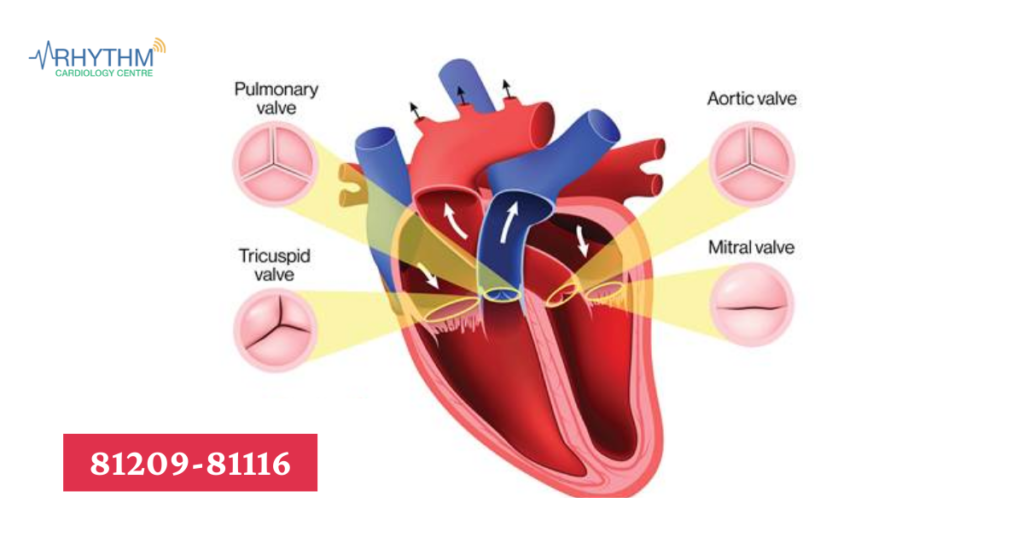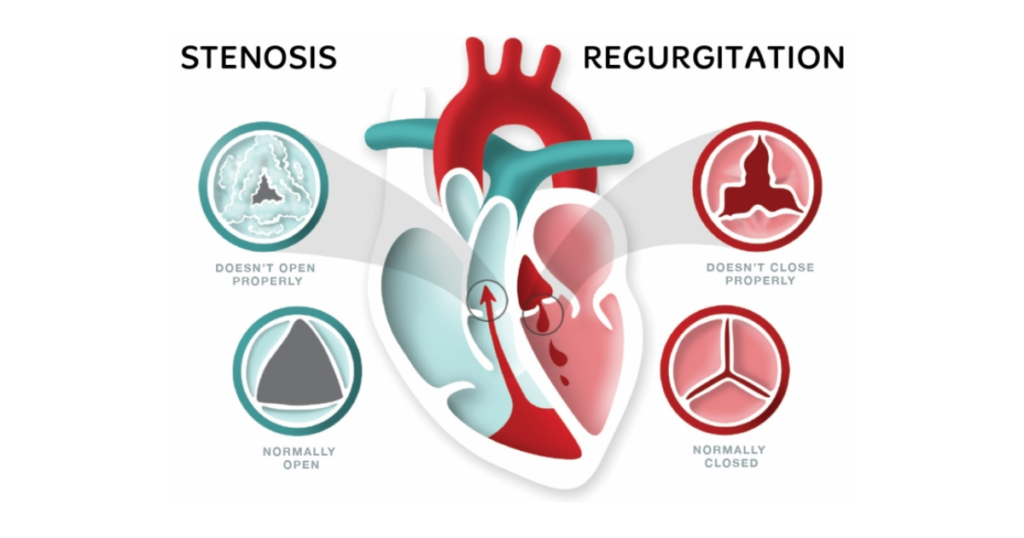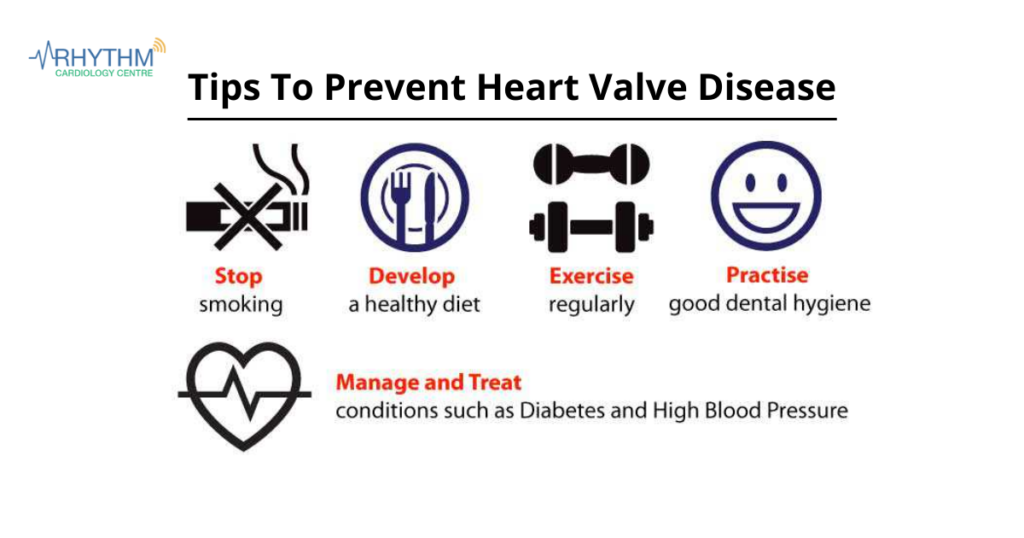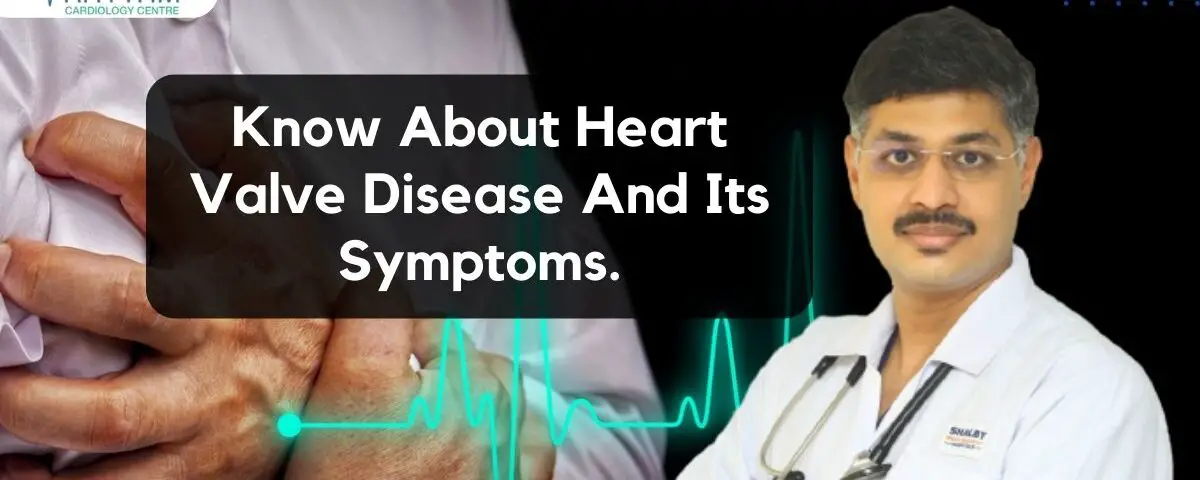A typical issue with the valves that keep your blood flowing through your heart in one direction is heart valve disease. When a heart valve isn’t functioning properly, medications can help with the blood flow issues, but sometimes that’s not enough. If the valve has to be fixed or replaced, the cardiologist can let you know.
What is Heart Valve Disease?
The heart basically consists of four chambers of the heart. Two upper chambers called atria and two ventricles make up the heart’s four chambers (lower chambers). Every time a heart chamber contracts, blood exits through a valve. On one side of a ventricle, they serve as blood one-way inlets, while on the opposite side, they serve as blood one-way exits. The following are some of the 4 heart valves:
Tricuspid valve: – It is basically located in the right heart’s right ventricle and right atrium.
Pulmonary valve: – In these the respiratory valve is situated between the pulmonary artery and the right ventricle.
Mitral valve: – Sternal valve situated in the space bounded by the left atrium and left ventricle.
Aortic valve: – Arterial valve is located in the heart’s left ventricle, next to the aorta.

Symptoms of Heart Valve Diseases – Cardiologist
People with heart valve disease frequently experience no symptoms at all. However, when the heart valve issue worsens, the heart starts to work harder to compensate for the decreased blood flow. Heart valve disease may worsen over time to the point where these signs start to emerge:
- Shortness of breath getting worse, especially after exercise or when resting down.
- Irregular or skipping of the heartbeat.
- Edema (swelling of the ankles, foot, or abdomen)
- Weakness or lightheadedness
- Quickly gaining weight
- Soreness in the chest, especially after exertion
- Fatigue.
- You can experience fever or body aches if an infection is the root cause of the valve illness.
Causes of Heart Valve Diseases – Cardiologist
- Untreated strep throat caused rheumatic fever.
- Elevated blood pressure (advanced).
- A birth defect is known as a congenital condition, such as an improperly developed pulmonary or aortic valve.
- Valve tissue calcification or degeneration with progressive function loss.
- A heart attack.
- Heart Failure
- Infection in the heart (infective endocarditis).

How to diagnose Heart Valve Diseases?
These symptoms of heart valve disease could be discovered by the cardiologist during a physical examination and stethoscope listening to your heart:
- The liquid in your lungs.
- A widened heart.
- Swelling in the ankles.
Heart valve disease can also be detected by several medical tests. Repeating testing over time can help your doctor track the progression of your valve disease and inform treatment choices.
How to treat Heart Valve Diseases?
If a heart valve issue is not treated, it could become dangerous. Heart valve damage cannot be reversed, although it can be treated.
- Treatments for heart valve disease depend on the underlying cause and could include: preventing more harm to your valve.
- The use of medication.
- If required, undergoing invasive procedures or surgery.
- Regular visits to your heart doctor.
- The following considerations may influence the decision to recommend medical treatment, surgical repair, or surgical replacement:
If you have heart valve problems and are pregnant, you can take specific medications from the cardiologist that won’t harm your unborn child or get more rest.
Ask your heart specialist or a cardiologist if any testing or appointments with a cardiologist are advised and if you are aware of your valve condition prior to trying to get pregnant. By doing this, you can make sure that you receive the proper care both before and during your pregnancy. The heart doctor might advise valve replacement or repair before becoming pregnant if you have a serious valve issue.
Test To diagnose Heart valve Disease?
Echocardiogram: – An echocardiogram (ultrasound of the heart) uses sound waves from a handheld wand placed on the chest to create a moving image of the heart’s chambers and valves.
Transesophageal echocardiography (TEE): – This procedure involves introducing a probe with an ultrasound transducer down your esophagus to perform an ultrasound of the heart. Due to the proximity of the esophagus to the heart, this can produce images that are more clear than those from a standard echocardiogram.
Exercise stress echocardiogram – Following a bike ride or treadmill walk, an echocardiogram is conducted to examine the heart’s valves and cardiac function.
Chest x-ray: – A brief X-ray scan of your chest is called a chest X-ray.

Cardiac catheterization (angiogram): – In this the X-ray images of the heart’s chambers, valves, and coronary arteries. The images are produced with the use of a contrast dye injected into a catheter in your arm or leg.
Electrocardiogram (EKG or ECG): – The electrocardiogram (EKG or ECG) captures the electrical activity of the heart on graph paper using tiny electrode patches placed on your skin.
Magnetic resonance imaging (MRI): – Radio waves and a magnet are used in magnetic resonance imaging (MRI) to produce clear images of the heart.
If you are suffering from heart valve disease and struggling to choose the best cardiologist who will help you take care of heart valve disease. Consult with Dr. Siddhant Jain the best cardiologist.
0







